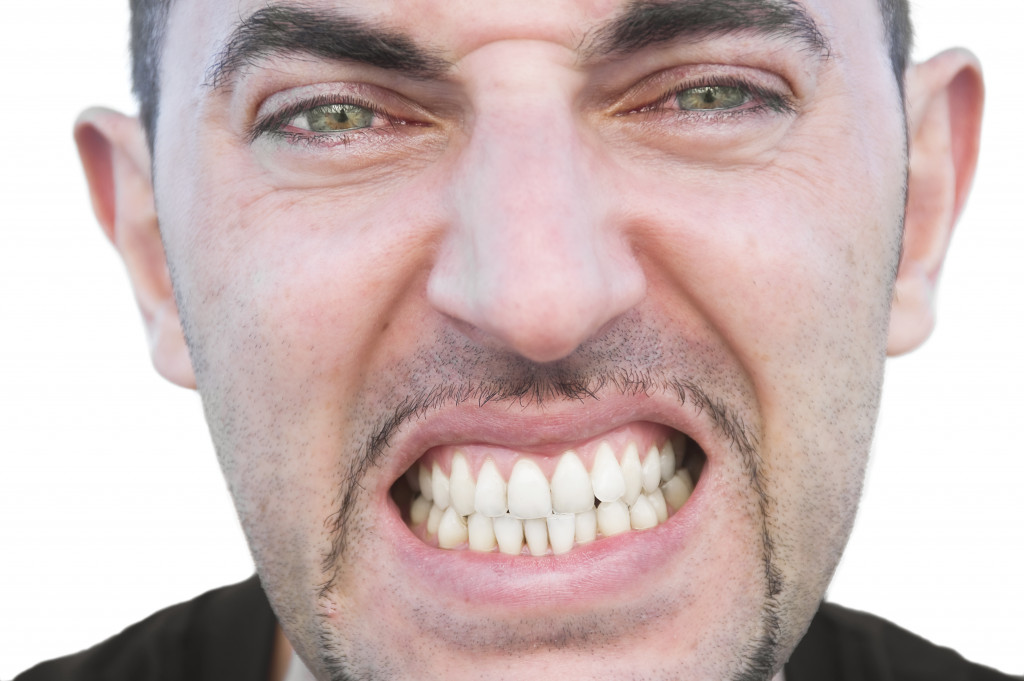Millions of people suffer from the involuntary habit of teeth grinding or bruxism. It is caused by stress, misaligned teeth, or sleep disorders like sleep apnea. While it may not seem like a big deal, over time, teeth grinding can lead to various problems, including damage to teeth and jaw muscles. Many people are unaware that they grind their teeth until they experience symptoms or are told by their dentist.
If you think you may be grinding your teeth, you need to take steps to avoid severe damage. This article will explore ways to manage the damage caused by teeth grinding.
1. See your dentist
The first step in managing teeth grinding damage is seeing your dentist. They will be able to diagnose the problem and develop a treatment plan. Treatment may involve wearing a mouth guard at night to prevent grinding or undergoing dental surgery to correct misaligned teeth.
If you are unsure of whether or not you should see a dentist for bruxism, consider making an appointment if you are experiencing any of the following symptoms:
- Waking up with a headache
- Jaw pain
- Tooth sensitivity or pain
- Worn down tooth enamel
Damaged teeth due to bruxism can be costly to fix. Seeing a dentist as soon as possible is essential to avoid further damage. Common treatments to repair damage caused by teeth grinding include:
- Crowns
- Veneers
- Fillings
- Root canals
2. Wear a mouth guard while sleeping
If your dentist recommends it, you should wear a mouth guard while sleeping. This will help to prevent damage to your teeth and jaw muscles. This device protects your teeth from grinding against each other and rubbing against your gums.
There are two types of mouth guards: custom-fitted and over-the-counter. Your dentist can make custom-fitted mouth guards to fit your mouth exactly. Over-the-counter mouth guards are less expensive but may not fit as well. Depending on your needs, your dentist may recommend one over the other.
Your dentist may also prescribe using a custom occlusal splint. Compared to a mouth guard that prevents your upper and lower teeth from touching, a splint is designed to hold your teeth properly and prevent them from grinding in your sleep. Some people find that splints are less comfortable to wear than mouth guards, but they may be more effective in treating bruxism.
3. Manage stress
Stress is a common trigger of teeth grinding. Stress triggers the body’s “fight or flight” response, leading to clenching of the teeth and jaw, especially in the less conscious state of sleep. If you think stress may be causing your bruxism, you can do a few things to manage it.

One way to manage stress is to find healthy outlets for it. This could involve regular exercise, journaling, or spending time with friends and family. You may also want to consider relaxation techniques such as yoga or meditation.
Others find that addressing the source of their stress is the best way to manage it. If work is causing you stress, talk to your boss about ways to reduce your workload. If you are going through a challenging life event, seek counseling or therapy.
4. Avoid foods and drinks that can damage your teeth
If bruxism has already caused damage to your teeth, avoiding foods and drinks that can further damage them is essential. Acidic beverages like soda, coffee, and wine can wear down tooth enamel. Hard and crunchy foods can also damage teeth already weakened by bruxism.
To protect your teeth, avoid sugary and acidic drinks and hard and crunchy foods. You should also limit caffeine intake, as caffeine can increase stress levels and worsen bruxism. Opt for water instead of sugary or acidic drinks, and eat soft foods that are easy on your teeth.
5. Quit smoking
Smoking is a significant risk factor for bruxism. Not only does it increase stress levels, but it also decreases saliva production. Saliva is vital for keeping the mouth healthy and preventing tooth decay.
If you smoke, quitting is the best way to reduce your risk of bruxism. Many resources are available to help you stop, including nicotine replacement products, counseling, and support groups. Talk to your doctor about the best way for you to quit smoking.
But if you can’t quit, there are still things you can do to reduce your risk of bruxism. Avoid smoking before bed, and brush your teeth and tongue after smoking to remove nicotine and other harmful toxins from your mouth. Try to smoke in areas with good ventilation to avoid exposing yourself to secondhand smoke.
Teeth grinding (bruxism) is a common problem that can cause damage to your teeth and jaw. Talk to your dentist if you think you may be grinding your teeth. They can help you find the cause of your bruxism and recommend treatment options. Always consult your dentist or healthcare provider before starting any new treatment.




